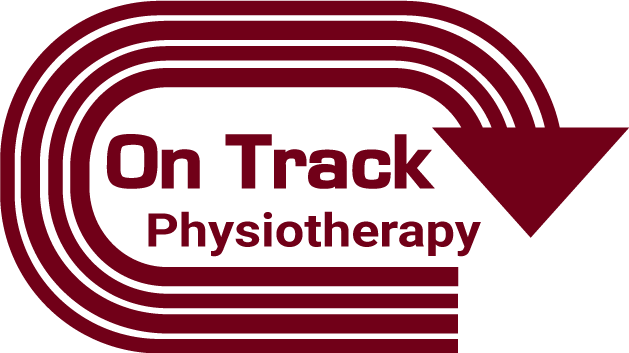On Track Physiotherapy
TMJ/TMD in Ann Arbor

Find Relief from TMJ/TMD Symptoms in Ann Arbor
Do you suffer from chronic jaw, face, or neck pain? Have you been experiencing headaches, difficulty chewing, or popping and clicking in your jaw? If so, you may have temporomandibular joint dysfunction (TMD) – a common yet widely misunderstood condition.
At On Track Physiotherapy, our physical therapists specialize in the non-invasive treatment of TMD/TMJ and related conditions. With over 15 years of experience helping patients find relief from jaw and facial pain, you can trust our proven solutions. Keep reading to learn what causes TMD, the most common symptoms, and how physical therapy can help you reclaim comfort and function without surgery or medications.
What Exactly Is TMJ/TMD?
TMJ stands for temporomandibular joint – the hinge connecting your jaw bone to your skull. This small but complex joint makes essential movements like chewing and speaking possible. TMD refers to a disorder impairing normal TMJ function. The specific causes are not fully understood, but factors like anatomy, arthritis, trauma, and teeth grinding likely play a role for many patients.
There is no single type of TMD. Rather, it encompasses a variety of conditions causing pain and dysfunction. Some common TMDs include:
- Arthritic conditions causing inflammation and joint degeneration
- Displaced discs preventing smooth joint movements
- Myofascial pain resulting from muscle strains and spasms
Women between the ages of 20 and 40 make up the majority of TMD cases. However, the disorder can occur to anyone at any age.
Recognizing the Signs and Symptoms or TMJ/TMD in Ann Arbor
The symptoms of TMD can vary significantly depending on the specific joint and muscle problems involved. Some patients experience severe, debilitating pain while others note only mild jaw tightness or tension.
Nevertheless, the most common TMD symptoms include:
- Chronic jaw/facial pain
- Difficulty or pain when chewing
- Locking, clicking, or popping jaw
- Headaches concentrated around the temples
- Earaches with no infection
- Neck, shoulder, and back pain
For some, symptoms may come and go. However, TMD often progresses over time without proper treatment. As the jaw muscles and joints become increasingly impaired, pain and loss of function intensify. Ignoring symptoms allows unhealthy compensation patterns to form, placing increased strain on the structures of the head and neck. Ongoing strain can then contribute to chronic migraines, tooth damage, arthritis, and more.
Why Physical Therapy for TMJ/TMD Treatment?
Traditional treatments for moderate-severe TMD include bite splints, anti-inflammatory medications, injections, and open-joint surgery. However, these options only address symptoms without resolving the underlying joint and muscle dysfunctions. Physical therapy takes a more holistic, functional approach to TMD management. Your PT will evaluate posture, muscle strength, flexibility, movement patterns, and compensation habits unique to your condition. Based on these findings, they can create a customized treatment plan to meet your needs without drugs or surgery.
Physical therapy also empowers patients through education and self-management techniques. By learning what triggers your symptoms and how to control them, you reduce reliance on your therapist and medical interventions over time.
Our TMJ/TMD physical therapy programs involve:
Treating Localized Pain and Inflammation
Your PT can reduce pain and inflammation in the TMJ area through:
- Heat/ice therapies
- Manual therapy techniques to improve joint mobility
- Soft tissue massage
As pain decreases, we’ll introduce gentle exercises to enhance strength and flexibility.
Improving Jaw Mobility and Function
Depending on examination findings, your physical therapist may utilize:
- Manual jaw mobilization techniques
- Passive/active stretching
- Neuromuscular re-education
Treatment focuses on restoring optimal alignment and mobility to the joint so you can open your mouth freely without pain.
Relieving Muscle Tension and Headaches
Muscular TMD is often accompanied by poor posture that strains the neck and contributes to headaches. Your customized treatment plan will include techniques like:
- Therapeutic massage
- Trigger point therapy
- Posture retraining exercises
- Relaxation techniques
Together, these help alleviate knotted muscles so headaches become less frequent.
Patient Education for Long-Term Management
Our therapists will also provide TMD education like:
- Understanding proper chewing/speaking mechanics
- Strategies for addressing teeth grinding/clenching
- Stress reduction techniques
- Diet modifications to ease joint strain
Using this knowledge, you can better control symptoms and minimize flare-ups as you transition out of formal treatment.
Benefits of Specialized TMJ/TMD Physical Therapy
Seeking out a therapist experienced in temporomandibular disorders ensures you receive care tailored to the intricacies of jaw dysfunction. This translates to better treatment outcomes including:
Less Pain, More Function
Our manual therapy techniques combined with custom exercises improve mobility and function of the jaw so you can chew, speak, and swallow comfortably again.
Fewer Headaches
Appropriate posture correction, muscle release techniques, and home care allow us to address muscular sources of many TMJ-related headaches.
Avoid Unnecessary Surgery
Surgery is invasive and does not treat root dysfunctions. Our non-surgical methods often help patients avoid these procedures completely.
Drug-Free Healing
We empower patients with safer ways to manage symptoms without the long-term use of medications and their side effects.
Lasting Results
Our self-care education provides lifelong tools so patients can control flare-ups and sustain outcomes. This reduces the need for reoccurring medical treatment.
Frequently Asked Questions
Wondering if our innovative approach to treating TMJ/TMD is right for you? Here are answers to some of our most common patient questions:
What is the difference between TMJ and TMD?
While often used interchangeably, TMJ refers specifically to the temporomandibular (jaw) joint while TMD describes disorders affecting normal TMJ function. Not all cases of TMJ disorders are painful, but TMD typically involves symptoms like jaw pain, headaches, ear pain, etc.
Does TMJ ever go away?
How TMJ progresses over time varies. When caught early and correctly treated, symptoms can resolve fully. However, without appropriate care, TMJ/TMD tends to recur and worsen. Our treatment empowers patients to better manage flare-ups.
Is it OK to live with TMJ?
Living with chronic TMJ pain is extremely uncomfortable and often impairs activities like speaking and eating. Over time, ignoring symptoms can allow additional problems like arthritis, disk displacement, and postural dysfunction to develop in the jaw and neck. Our therapy often helps patients find relief from TMJ when other options have failed.
Is TMJ a lifelong problem?
For patients fully completing PT and continuing self-care education at home, symptoms tend to improve dramatically and recurrence becomes far less common. However, since factors like teeth grinding can exacerbate TMJ, patients finding triggers and controlling them is key to sustained relief.
Meet Your On Track Physiotherapy TMJ/TMD Specialty Team
Our experienced physical therapists leverage both time-tested and innovative techniques to treat temporomandibular dysfunction. With advanced post-graduate training in jaw rehabilitation, we understand how to thoroughly evaluate and resolve the root causes of TMD pain.
Dr. Greg Schaible, PT, DPT, CSCS
As clinic director and physical therapy veteran, Dr. Greg Schaible pursues advanced continuing education annually. He takes particular interest in helping patients with complex TMJ cases find lasting relief from facial pain when other avenues have failed.
Dr. Morgan Kennedy, PT, DPT
Dr. Morgan Kennedy expands the clinic’s ability to treat TMJ patients suffering from chronic head, neck, and facial swelling. Her gentle manual techniques help ease muscular tension while correcting postural habits that contribute to symptoms.
Take Control of Your TMJ Symptoms Today
If you’re struggling with jaw pain, difficulty chewing, headaches, or other TMD symptoms, we can help. Through expert evaluation and customized treatment plans, On Track Physiotherapy’s physical therapists can get you back to eating, speaking, and living comfortably again.
Call 734-972-6529 now to schedule a thorough TMJ assessment so we can get to work resolving the root causes of your pain and dysfunction. Or, stop by our Ann Arbor clinic any time for a no-cost consultation. Our front desk will be happy to answer your questions and get you scheduled immediately with one of our jaw rehabilitation specialists. We look forward to helping you achieve lasting relief!
About The Author
Imagine overcoming limitations and regaining your physical strength. Dr. Greg Schaible, a licensed Physical Therapist in Certified Strength & Conditioning and Sports Rehab, has helped countless individuals like you do just that. Practicing at On Track Physiotherapy in Ann Arbor, Dr. Greg Schaible believes in tailored care and utilizes innovative techniques to create unique solutions for each patient’s journey.



